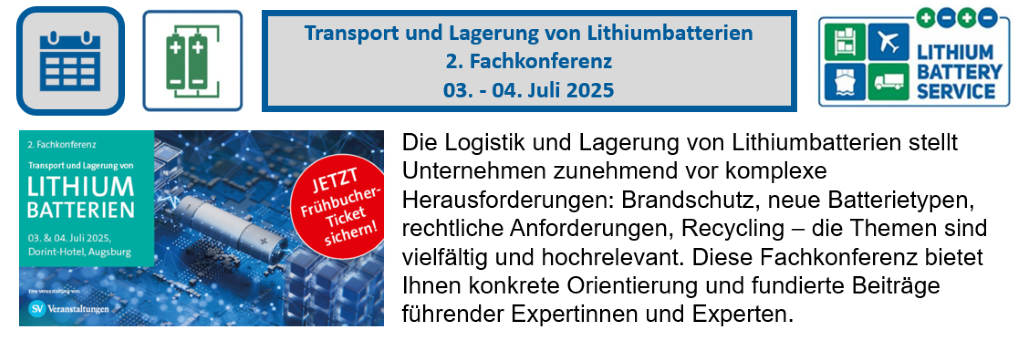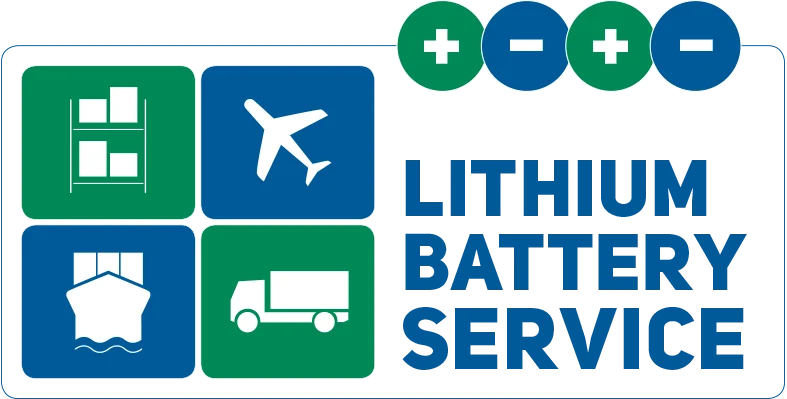What is necessary for shipping lithium metal button cells on circuit boards (UN 3091 PI 970 Section II) in air transport?
What is necessary for shipping lithium metal button cells on circuit boards (UN 3091 PI 970 Section II) in air transport?

The Question of the Day is:
If
a package with a circuit board containing a lithium metal button cell,
e.g. CR2354 (prepared according to UN3091 PI970, Section II), is to be
shipped by air, is it necessary that the persons packing and
documenting the shipment must be trained/instructed? Although there is
no marking + shipper's declaration required.
Our answer:
The
personnel needs to receive adequate instructions according to 1.6 IATA
DGR to ship such circuit boards. Such adequate instructions should
include at minimum the following:
• Classification of lithium batteries being shipped.
• Documentation of procedures applied to lithium batteries being shipped.
• Written work instructions or other documentation, including automated controls.
• Review and understanding of documented procedures as applicable to the job function.
• Instruction records including date(s) for all employees.
•
Refresher instructions provided at a minimum every two years or as the
documented instructions are revised or regulations are changed.
• Reverse logistics, including transport mode and applicable prohibitions.
Necessary logistics information:
Furthermore, the following must also be available for each of these button cells:
1. a confirmation of the manufacture in accordance with quality management program. And
2. the UN 38.3 test summary.
„Make available“:
The
text under 3.9.2.6.1 (g) in the IATA DGR means that for the logistic
process the UN 38.3 Test Summary does not need to be provided to the
forwarding agent, the shipping company or the operator.
Yet
for you as a company you need to have the UN 38.3 Test Summary for each
button cell aligned in your system electronically to the article and
the respective confirmation on the manufacture according to QM program
also (see 3.9.2.6.1 (e)). When you don´t have the confirmation of
manufacture according to QM program or no UN 38.3 test summary, the
button cell need to be considered as „damaged/defective“ and with this
the article needs to be moved to the quarantine place outside the normal
stowage respective production area. Stowage of the goods in the normal
stowage and production area is only allowed with QM program and UN 38.3
test (in form of the UN 38.3 test summary). In case of fire the
insurance would not pay compensation without the confirmations.
More blog posts
Latest newsblog posts

Unterschiedliche Formulierungen in Regelwerken
September 30, 2025
Newsletter
Der Produktionsprozess für Lithium-Zellen und -Batterien muss, wenn diese transportiert werden sollen, einem Qualitätsmanagementprogramm (QM-Programm) unterliegen.

Weiterbildungstermine Oktober 2025
September 30, 2025
Dates
Diese Termine zur Weiterbildung können wir Ihnen anbieten:

Einstufung von Lithium-Altbatterien künftig als gefährlicher Abfall
September 29, 2025
Newsletter
Für Abfallerzeuger, -besitzer, Sammler und Beförderer ist dies von hoher Bedeutung:

38.3-Prüfberichte und die zutreffende Ausgabe des Handbuchs über Prüfungen und Kriterien
September 29, 2025
Newsletter
Immer wieder taucht die Frage auf, auf welche Ausgabe des Handbuchs über Prüfungen und Kriterien zu referenzieren sei.

Batteriepass und Batterieverordnung
September 25, 2025
Knowledge
Sie haben keine Ahnung, was es damit auf sich hat?

SV 188 (f) „Knopfzellen-Batterien“
September 25, 2025
Newsletter
Der Begriff „Knopfzellen-Batterie“, der z.B. in der SV 188 (f) auftaucht, führte bei uns im Team zu der Diskussion, ob dies auch für Batterien, die aus Knopfzellen bestehen, gelten würde.

Solid-State Battery Summit + Sodium-Ion Battery Conference
May 26, 2025
Dates
This year, the Solid-State Battery Summit will take place on August 12th and 13th in Chicago, IL, USA, as well as virtually. The Sodium-Ion Battery Conference will take place at the same time.

European seminar on the development of high-voltage batteries
May 23, 2025
Dates
The hands-on seminar focuses on the technology, design, prototype manufacturing and validation methodology of rechargeable EV batteries.

Lithiumbatterien im Seeverkehr
May 23, 2025
Dates
Die Fachkonferenz „Lithiumbatterien im Seeverkehr“ bringt am 26. Juni 2025 erneut Experten und Entscheider aus Reedereien, Versicherungen, Seespeditionen, Hafenfeuerwehren, Behörden und Umschlagsbetrieben zusammen.

Transport und Lagerung von Lithiumbatterien 2. Fachkonferenz 03. - 04. Juli 2025
May 23, 2025
Dates
Diese Fachkonferenz bietet Ihnen konkrete Orientierung und fundierte Beiträge führender Expertinnen und Experten.


